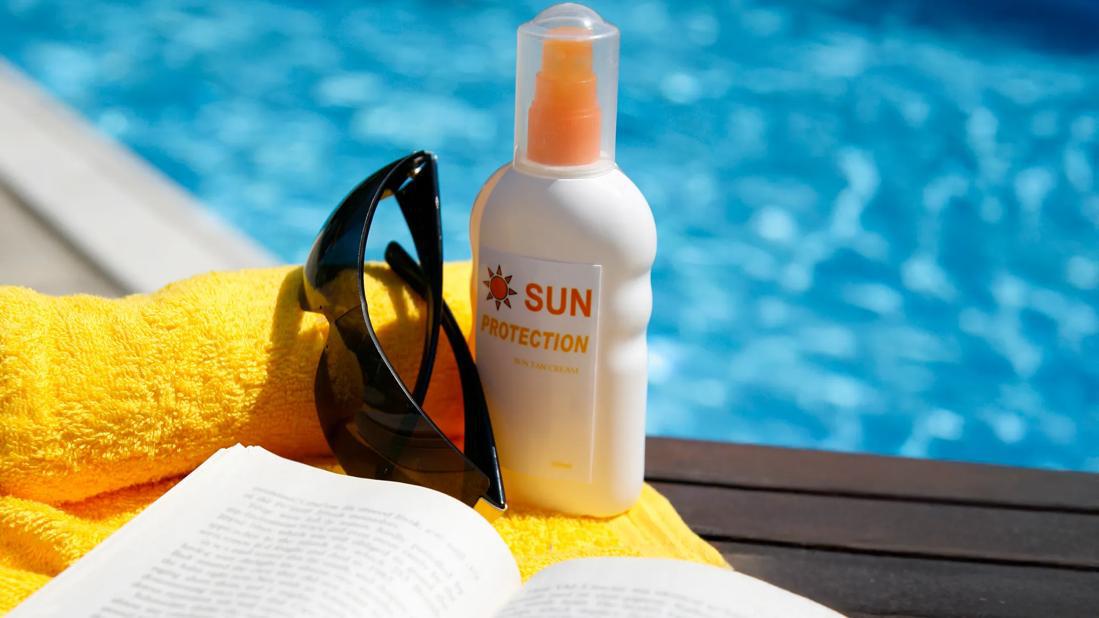Yes, Your Sunscreen Can Expire
You know it’s not good if you’ve been holding onto it for more than three years or if it’s changed in color, consistency or smell

You read that right: Sunscreen can expire!
While we try not to put an expiration date on all things summer fun, your sunscreen can expire, especially if it’s stored incorrectly or sits unused for too long.
But does that mean you have to throw away your sunscreen and replace it with a new one? Or can expired sunscreen still be useful?
Dermatologist Kathryn Anderson Sutton, MD, answers these burning questions.
How long does sunscreen last?
Like anything else in your medicine cabinet, sunscreen has a shelf life. Its active ingredients naturally break down over time. So, unless otherwise noted on the label, sunscreen lasts for about three years. But that’s only if it’s been stored properly. If it’s been left in the dredges of a hot car, in a humid environment or in an area where it’s been exposed to sunlight, sunscreen degrades at a much faster rate.
“Realistically, if you’re using sunscreen every day, the way it’s directed, each bottle shouldn’t last you more than a few weeks or a couple of months,” notes Dr. Anderson Sutton.
What happens if you use expired sunscreen?
When sunscreen expires, its active ingredients are no longer effective. That means any UV protection you would have had from a fresh bottle of sunscreen is likely lost. Using expired sunscreen increases your risk of:
- Sunburns
- Sun damage
- Skin cancer
To be clear: It’s not the sunscreen that causes these negative outcomes — it’s the amount of time you spend in the sun without protection.
“A lot of people think that sunscreen makes them invincible, but if it’s old or expired, you’re actually susceptible to getting burnt because it’s no longer effective,” stresses Dr. Anderson Sutton.
How to tell if your sunscreen has expired
Expired sunscreen will often have changes in color, consistency and smell. Mineral- and chemical-based sunscreens break down differently.
If a mineral-based sunscreen goes bad, you might notice a grittiness or little pebbles in the formula. It’s also hard to rub expired mineral sunscreens into your skin.
Chemical-based sunscreens tend to go bad more quickly, especially if they’ve been left in the sun for long periods of time. If a chemical-based sunscreen has been oxidized (meaning it’s been exposed to oxygen for too long), it could potentially cause an allergic skin rash that looks like a blistering sunburn. When this type of sunscreen expires, it may become yellow, watery and won’t spread well.
How to safely store sunscreen
To keep your sunscreen safe and effective for as long as possible, you’ll want to:
- Store it in a cool, dry place. This keeps its active ingredients from breaking down.
- Keep it clean. Wash your hands before putting on sunscreen and make sure you close the lid after every use. This helps avoid oxidizing your sunscreen and keeps bacteria from transferring to the bottle — things that cause it to break down.
- Don’t keep it in direct sunlight. This quickly breaks down sunscreen. If you’re going swimming, don’t leave the bottle out in the sun. Place it in the shade or cover it with a bag, towel or blanket.
Replace your sunscreen every summer ― or every month if you’re using it as often as you should. Store your sunscreen in a cool, dry area over the winter. And if you’re holding onto a bottle of sunscreen that has an unclear expiration date, it’s best to just go get another one and start fresh.